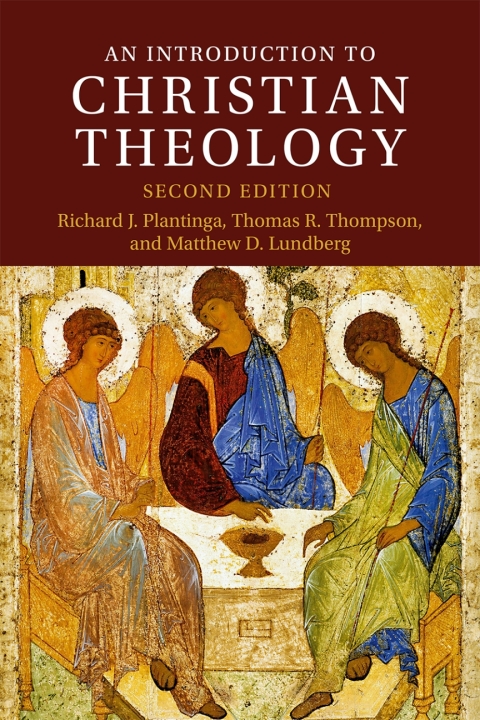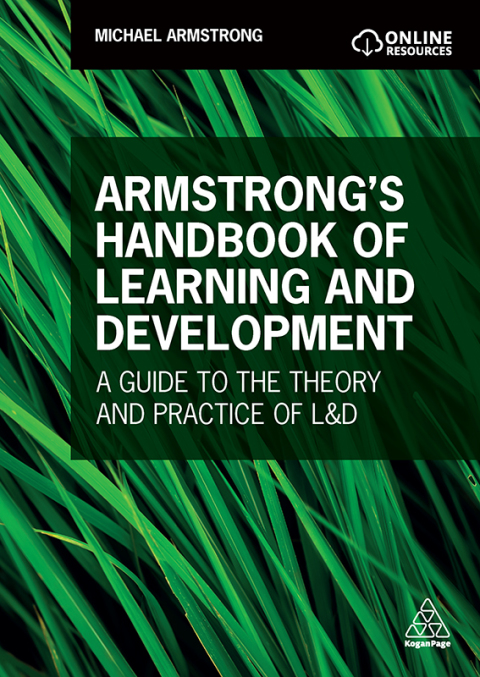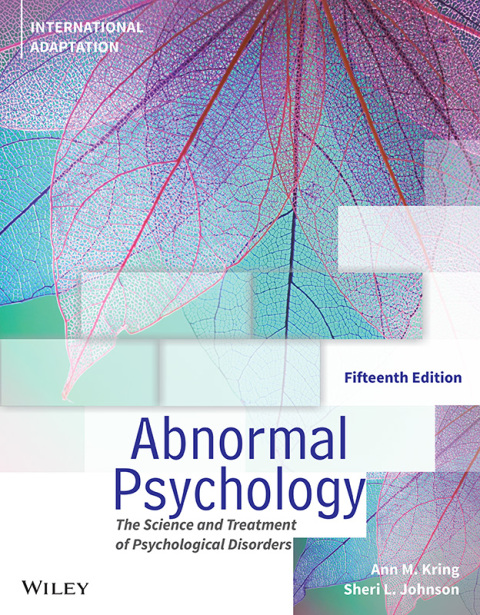Description
Efnisyfirlit
- Half-title
- Praise for the First Edition
- Title page
- Copyright information
- Dedication
- Contents
- List of Figures
- List of Tables
- Preface
- Acknowledgments
- Abbreviations
- Part I Introduction to Theology
- Chapter 1 What Is Theology?
- Introduction: The Quest(ions) of Human Existence
- The Development of the Concept of Theology
- Origin of the Term ”Theology”
- Brief History of the Concept and Practice of Theology
- Patristic Developments
- Medieval and Reformation Developments
- Modern and Contemporary Developments
- The Architecture and Method of Theology
- The Sources/Norms and Branches of Theology
- The Tasks and Audiences of Systematic Theology
- The Criteria of Systematic Theology
- The Dynamics of Systematic Theology
- Sources and Further Reading
- Chapter 2 The Critical Context of Theology Today
- The Contextual Dimension of Theology
- The Social Location and Identity of the Theologian
- Modernity
- The Enlightenment Project
- Challenge to Christian Orthodoxy
- Secularization and the Rise of Modern Atheism
- Individualism and Dehumanization
- The Problem of Evil
- Postmodernity
- The Crisis of Meaning
- Historical Contingency
- Epistemological Pluralism
- Global Consciousness
- Conclusion
- Sources and Further Reading
- Part II Key Themes of Christian Theology
- Chapter 3 Revelation and Knowledge of God
- The Concept of Revelation
- Knowing God and the Necessity of Revelation
- The Meaning of Revelation
- General Revelation
- Biblical Themes
- Natural Theology
- Special Revelation
- The Word of God
- The Doctrine of Scripture
- The Relationship of General and Special Revelation
- General Revelation Alone
- Special Revelation Alone
- The Integration of General and Special Revelation
- Speaking of God
- Anthropomorphism
- Accommodation
- Analogy
- Metaphor
- Recent Challenges to God-Talk
- Conclusion
- Sources and Further Reading
- Chapter 4 A Tale of Two Theisms
- Introduction
- Biblical Foundations
- Old Testament
- New Testament
- The Historical Development of Classical Theism
- Christianity and Hellenistic Culture
- The Patristic Legacy
- Scholasticism and Thomas Aquinas
- The Specter of Modern Atheism
- Naturalistic Atheism
- Humanistic Atheism
- Apathetic Atheism
- Protest Atheism
- A Tale of Two Theisms
- Classical Theism
- Trinitarian Theism
- Reconsidering Divine Attributes
- Simplicity / Indivisibility
- Immutability
- Eternality
- Sources and Further Reading
- Chapter 5 The Triune God
- Introduction
- The Biblical Basis of the Doctrine of the Trinity
- Old Testament
- New Testament
- The Historical Development of Trinity Doctrine
- The Earliest Church Fathers and the Heresy of Modalism
- The Arian Controversy
- The Cappadocians and the East
- Augustine and the West
- The Modern Demise of Trinity Doctrine
- A Trinitarian Renaissance
- A Systematic Consideration of the Trinity
- A Typology of Models
- The Western Paradoxical Trinity
- The Neo-Modal Trinity
- The Social Trinity
- Forms of Unity
- The Question of Tritheism
- Trinitarian Mystery
- Practical Advantages of the Social Model
- Conclusion: The Question of ”God”
- Sources and Further Reading
- Chapter 6 The World as Creation
- Introduction
- The Biblical Affirmation of Creation
- Old Testament
- New Testament
- The Doctrine of Creation in Historical Perspective
- Gnosticism and Creatio ex Nihilo
- Geocentric Cosmology
- Heliocentrism and the Rise of Modern Science
- Creation and Evolution
- Today’s Ecological Crisis
- A Systematic Consideration of Creation Doctrine
- Implications of Creatio ex Nihilo Doctrine
- ”God is the source of all that there is”
- ”Creatures are dependent, yet real and good”
- ”God creates in freedom and with purpose”
- Divine Transcendence
- Ontological Implications
- Epistemological Implications
- Divine Immanence
- Retrieving Immanence in View of the Ecological Crisis
- Sources and Further Reading
- Chapter 7 Humanity in the Image of God and the Disfigurement of Sin
- The Question of Human Identity
- The Image of God in the Biblical Text
- Old Testament
- New Testament
- The Image of God in the History of Theology
- Irenaeus
- Thomas Aquinas
- John Calvin
- Emil Brunner
- The Image of God: A Representational-Relational Conception
- God and Humanity
- The Human Community
- Humanity and Nature
- Sin and the Image of God
- Defining Sin
- Original Sin
- Actual Sin
- Sources and Further Reading
- Chapter 8 The Problem of Evil and the Question of Theodicy
- The Nature and Reality of Evil
- The Problem of Evil
- Dimensions of the Problem
- The Experiential Force of Evil
- The Intellectual Conundrum of Evil
- Twentieth-Century Intensification of the Problem of Evil
- Theodicies in the Western Tradition
- Evil as Inherent in Materiality
- Evil as Non-Being
- Evil as Condition for Human Becoming
- Evil and Cosmic Beauty
- Evil and Submission to the Divine Will
- A Theological Response to the Problem of Evil
- The Problem of Theodicy
- The Free-Will Defense
- The Origin of Evil
- The Present and Future Status of Evil
- Good Friday: Trinity and Cross
- Easter Sunday: Resurrection and New Creation
- Holy Saturday: Lament, Protest, and Hope
- Conclusion
- Sources and Further Reading
- Chapter 9 The Identity and Person of Jesus Christ
- Introduction: The Quest(ion) of God
- Biblical Foundations
- Old Testament Messianic Expectations
- New Testament Fulfillment
- The Deity of Christ
- Historical Development
- The Long Road to Chalcedon
- The Ebionitic Strain and the Council of Nicea (325)
- The Docetic Strain and the Council of Constantinople (381)
- The Alexandrian and Antiochene Schools and the Council of Chalcedon (451)
- Modern Developments and Reaction
- A Systematic Consideration of the Person of Christ
- The Two-Natures Model
- The Kenotic Model
- Sources and Further Reading
- Chapter 10 The Reconciling Work of Jesus Christ
- Introduction
- Biblical Roots of the Christian Understanding of Reconciliation
- Old Testament
- New Testament
- Root Metaphors and Images
- Broader Biblical Perspectives
- Traditional Christian Atonement Theories
- Patristic Theology
- Recapitulation
- Deification
- Ransom
- Medieval and Reformation Theology
- Satisfaction
- Penal Substitution
- Modern Theology
- Exemplarism
- Kingdom of God
- A Narrative Proposal for Reconciliation Theology
- Creation as Kingdom of God
- Incarnation as Recapitulation
- Crucifixion as Substitutionary Death
- Resurrection for Liberation, Humanization, and Cosmic Shalom
- Conclusion
- Sources and Further Reading
- Chapter 11 The Person and Work of the Holy Spirit
- Introduction: The Cinderella of the Trinity?
- Biblical Foundations
- Spirit in the Old Testament
- The Holy Spirit in the New Testament
- The Personhood and Deity of the Holy Spirit
- Historical Developments in Pneumatology
- The Patristic Era to the Council of Constantinople
- Augustine, the West, and the Filioque Clause
- The Middle Ages and the Reformation
- Modern Developments
- Enlightenment Challenges and Critiques
- Pentecostalism and Charismatic Movements
- Systematic Considerations
- The Filioque Clause
- Trinitarian Appropriations
- Recovery of the ”Creator Spirit”
- Spirit and Flesh
- Holistic Spirituality
- The Creator Spirit and the Ecological Crisis
- The Spirit and the World’s Religions
- The Spirit in Glorification
- Sources and Further Reading
- Chapter 12 Dimensions of Salvation
- Introduction
- Salvation in Biblical Perspective
- Old Testament
- New Testament
- Personal and Cosmic Salvation
- The Saving Work of the Holy Spirit: Adoption into the Triune Life
- Dimensions of Salvation in Historical and Systematic Perspective
- Faith
- Justification
- Sanctification
- Cosmic Salvation and Personal Vocation
- Conclusion
- Sources and Further Reading
- Chapter 13 The Church and Its Mission
- Introduction
- The Nature and Identity of the Church
- The Biblical Witness
- Old Testament
- New Testament
- Key Biblical Images
- The Nicene Notes of the Church
- Unity
- Holiness
- Catholicity
- Apostolicity
- The Mission of the Church
- Tasks of the Church
- Proclamation through Preaching
- The Sacraments as Proclamation
- The Embodied Proclamation of the Living Church Community
- Mission and Election
- Visible and Invisible Church
- Reframing Election
- Conclusion: A Church For the World
- Sources and Further Reading
- Chapter 14 Christianity in a Global Context
- Introduction: Two Theaters and Challenges to the Mission of the Church
- Western Christianity
- The Decline of Christianity in Recent Centuries
- Heightened Awareness of the Complexity of Humanity’s Religious History
- Christian Responses to Religious Plurality
- Biblical Perspectives
- Historical Perspectives
- A Typology of Approaches
- World Christianity
- The Recent Growth of ”Non-Western” Christianity
- Latin America
- Africa
- Asia
- The Future of the Church
- Sources and Further Reading
- Chapter 15 Hope and the Future
- Introduction
- Hope Springs Eternal
- Biblical Eschatology
- Old Testament Hopes
- New Testament Realization
- Historical Perspectives: The Waning and Waxing of Biblical Eschatology
- A Systematic Consideration of Ecumenical Eschatology
- The Second Coming of Christ
- The Question of the Millennium
- The Resurrection of the Dead
- The Question of the Intermediate State
- Final Judgment/Justice
- The Question of Hell
- The New Heaven and Earth
- The Question of Hope
- Sources and Further Reading
- Part III Historical Survey of Christian Theology
- Chapter 16 Theology in the Patristic Era (c. 100-500)
- The Birth of Christianity
- The Jewish Roots of Christianity
- The Greco-Roman World of Early Christianity
- The Search for Christian Identity
- The ”Apostolic Fathers”
- Theology amid Persecution: Martyrdom and the Apologists
- Heresy and the Checkered Path to ”Orthodoxy”
- Three Formative Theologians
- Irenaeus
- Tertullian
- Origen
- The Development of Creeds
- The Constantinian Shift
- Conciliar Orthodoxy: Definitive Christian Identity
- The New Testament Canon
- The Trinitarian Controversy
- The Christological Controversy
- East And West and the Identity of Traditions
- The Cappadocians
- Augustine
- Sources and Further Reading
- Chapter 17 Theology in the Middle Ages (c. 500-1400)
- Introduction: Diverging Traditions
- Byzantine Theology
- Key Theological Accents
- Continued Controversy and the Later Ecumenical Councils
- The Filioque Controversy
- Latin Theology
- Early Medieval Theology
- Early Scholasticism
- Anselm of Canterbury
- Peter Abelard
- Peter Lombard
- The School of St. Victor
- High Scholasticism
- The Mendicant Orders
- Bonaventure
- Thomas Aquinas
- Late Scholasticism
- John Duns Scotus
- William of Ockham
- Conclusion
- Sources and Further Reading
- Chapter 18 Theology in the Reformation Period (c. 1400-1700)
- The Late Medieval Context of Church and Society
- The Lutheran Reformation
- Martin Luther
- Justification
- Theology of the Cross
- Law and Gospel
- Sacraments
- Philipp Melanchthon
- Lutheran Controversies and the Formula of Concord
- The Calvinist Reformation
- Huldrych Zwingli
- John Calvin
- Knowledge of God
- Providence and Predestination
- Christ and Salvation
- Sacraments
- The English Reformation
- The ”Radical” Reformation
- The Catholic Reformation
- The Counter-Reformation
- The Council of Trent
- Post-Reformation Theological Currents
- Protestant Orthodoxy
- Puritanism
- Pietism
- Conclusion
- Sources and Further Reading
- Chapter 19 Theology in Modernity (c. 1700-1960)
- Introduction: Prelude to the Modern World
- The Enlightenment
- Basic Features of the Enlightenment
- Philosophical Developments
- Enlightenment Challenges to Christian Belief
- Belief in God in General
- Christian Belief in Particular
- Theological Responses to the Enlightenment
- Immanuel Kant
- Georg W. F. Hegel
- Friedrich Schleiermacher
- Roman Catholicism and the First Vatican Council
- Eastern Orthodoxy
- Liberal Protestantism
- Neo-orthodoxy
- Karl Barth
- Emil Brunner
- Dietrich Bonhoeffer
- Rudolf Bultmann
- Reinhold Niebuhr
- Paul Tillich
- Sources and Further Reading
- Chapter 20 Theology in the Contemporary Period (c. 1960-Present)
- Theology in the Turbulent 1960s
- Death-of-God and Secular Theologies
- Process Theology
- Catholic Theology and Vatican II
- Twentieth-Century Catholic Theological Reform
- The Second Vatican Council
- Eastern Orthodox Theology
- History and Eschatology in Protestant Theology
- Wolfhart Pannenberg
- Jürgen Moltmann
- Liberation Theologies
- Latin American Liberation Theology
- Black Theology
- Feminist Theology
- Postmodernity and Theology
- Radical Postmodernism in Theology
- Narrative and Post-liberal Theology
- Global Christianity and the Shape of Theology
- Conclusion
- Sources and Further Reading
- Glossary
- Index







Reviews
There are no reviews yet.